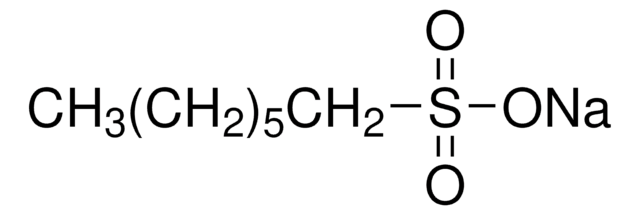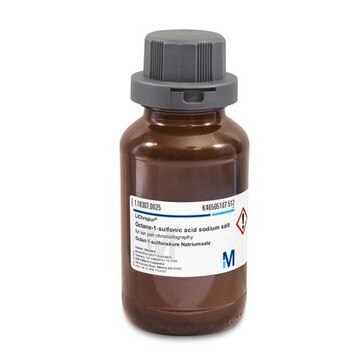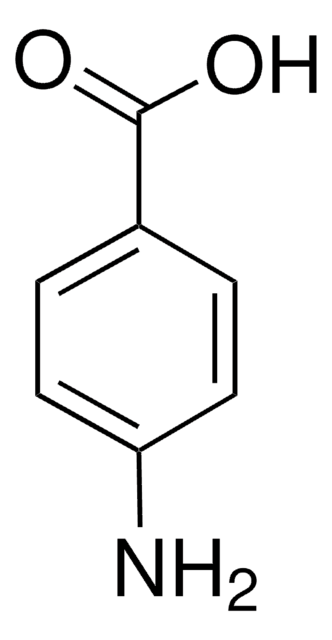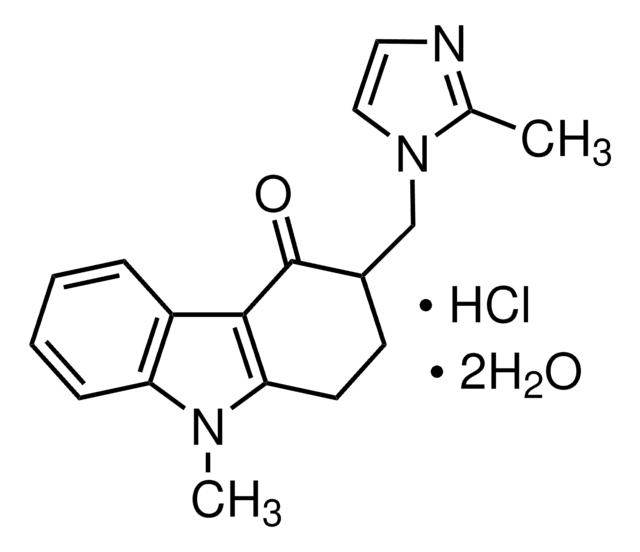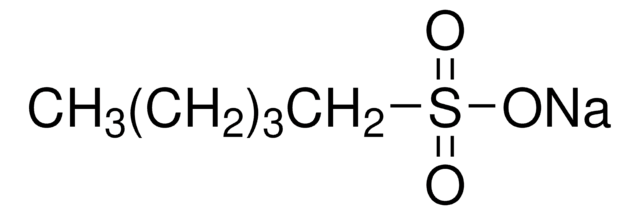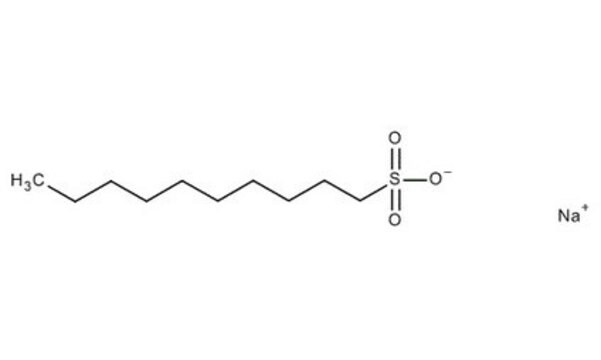O8380
1-Octanesulfonic acid sodium salt
≥98%
Synonym(s):
Octane-1-sulfonic acid sodium salt, Sodium 1-octanesulfonate, Sodium octane-1-sulfonate, Sodium octanesulfonate
About This Item
Recommended Products
biological source
synthetic (oragnic)
Quality Level
description
anionic
Assay
≥98%
form
powder
mol wt
216.27 g/mol
technique(s)
HPLC: suitable
impurities
<2.0% water (Karl Fischer)
mp
300 °C (572 °F)
solubility
9.8 g/L at 20 °C
cation traces
Na: 10.1-11.1 % (w/v) (Anhydrous)
SMILES string
[Na+].CCCCCCCCS([O-])(=O)=O
InChI
1S/C8H18O3S.Na/c1-2-3-4-5-6-7-8-12(9,10)11;/h2-8H2,1H3,(H,9,10,11);/q;+1/p-1
InChI key
HRQDCDQDOPSGBR-UHFFFAOYSA-M
Looking for similar products? Visit Product Comparison Guide
General description
Application
- as a component of 9 parts buffer to determine the concentration of L-Dopa in extracts of seed flour
- in mobile phase solution to measure dopamine in rats using high-performance liquid chromatography (HPLC) analysis
- in neurochemistry for the preparation of mobile phase buffer for HPLC analysis.
Features and Benefits
- Highly versatile surfactant for your cell biology and biochemical research
- Suitable for HPLC applications
Other Notes
comparable product
Signal Word
Danger
Hazard Statements
Precautionary Statements
Hazard Classifications
Eye Dam. 1 - Skin Corr. 1B
Storage Class Code
8B - Non-combustible corrosive hazardous materials
WGK
WGK 2
Flash Point(F)
Not applicable
Flash Point(C)
Not applicable
Personal Protective Equipment
Regulatory Listings
Regulatory Listings are mainly provided for chemical products. Only limited information can be provided here for non-chemical products. No entry means none of the components are listed. It is the user’s obligation to ensure the safe and legal use of the product.
JAN Code
O8380-5G:
O8380-VAR:
O8380-100G:
O8380-25G:
O8380-BULK:
Choose from one of the most recent versions:
Already Own This Product?
Find documentation for the products that you have recently purchased in the Document Library.
Customers Also Viewed
Our team of scientists has experience in all areas of research including Life Science, Material Science, Chemical Synthesis, Chromatography, Analytical and many others.
Contact Technical Service

